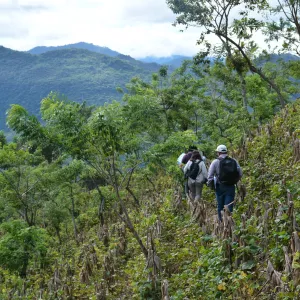It Takes All of Us: Collective Action for Scaling Impact in Agrifood Systems
Author: Daniela Arce Gómez, Communications Coordinator, Climate Action Latin America and the Caribbean (LAC) at the Alliance of Bioversity and CIAT, and regional communications focal point for CGIAR scaling for impact program in LAC In May 2025, various CGIAR research centers led a series of three regional dialogues on Scaling for Impact (S4I) with strategic partners in Latin America

It Takes All of Us: Collective Action for Scaling Impact in Agrifood Systems
Author: Daniela Arce Gómez, Communications Coordinator, Climate Action Latin America and the Caribbean (LAC) at the Alliance of Bioversity and CIAT, and regional communications focal point for CGIAR scaling for impact program in LAC
In May 2025, various CGIAR research centers led a series of three regional dialogues on Scaling for Impact (S4I) with strategic partners in Latin America and the Caribbean, Africa, and Asia. These spaces for exchange were designed as key platforms to assess the progress of the global program, share experiences from the ground, and strengthen alliances around a common goal: to bring validated innovations to those who need them most, in a sustainable, responsible, and context-specific manner.
The Scaling for Impact initiative represents a renewed vision within CGIAR. Scaling is no longer understood as simply disseminating technologies or increasing the reach of a solution. It means transforming the way we conceive and manage innovation in agri-food systems, recognizing that contexts are complex, needs evolve, and real impact only happens when science is combined with local engagement, enabling policies, financing mechanisms, and collaboration among diverse actors.

Photos of the Africa virtual session

Photos of the Asia virtual session

Photos of the LAC virtual session
At the heart of the approach lies a critical understanding: scientific innovations alone do not generate change. It is necessary to precisely identify demand, assess whether solutions are ready to scale, and build implementation pathways that take into account institutional, political, social, and environmental factors. There must also be a clear exit strategy—one that acknowledges that research centers should not remain at the center of implementation, but rather enable and empower local actors to sustain and lead the scaling process.
In Latin America and the Caribbean, the dialogue held on May 5 brought together participants from Mexico, Honduras, Guatemala, and Colombia. The discussions surfaced common challenges related to financing, digital inclusion, public policy, and the need to strengthen local innovation networks. Participants emphasized that impact is not achieved solely through labs or national policies, it emerges through meaningful coordination among local knowledge, available solutions, and enabling conditions for adoption. Initiatives such as Local Technical Agroclimatic Committees (MTA in Spanish) or advances in biofortified crops in Colombia were highlighted as inspiring examples of grounded innovation with potential for scale.

In Africa, the May 7 session focused on the need to tailor scaling processes to diverse and dynamic realities. Partners stressed the importance of building strong local capacities, integrating traditional knowledge with modern science, and designing more inclusive financial models. Scaling, they noted, must be a living process, adaptable, collaborative, and deeply rooted in the communities it seeks to serve.

The Asia dialogue, held on May 12, explored the interplay between science, public policy, and markets. Participants shared experiences using digital platforms, artificial intelligence, and data analytics to better understand local needs and guide targeted interventions. They also discussed how innovations can be embedded within policy frameworks and rural development plans to ensure their adoption and sustained impact.

Together, these three regional dialogues underscored a key insight: scaling is not a linear path, nor a one-size-fits-all model. It is a journey that demands flexibility, evidence, and above all, collaboration. CGIAR centers and its partners are now moving forward with plans to co-design regional scaling roadmaps aligned with local priorities, build a global innovation platform informed by regional learning, and strengthen local capacities to anchor change. Policy engagement will also be a key component, ensuring that evidence informs national and regional decision-making.
The conclusion emerging from these sessions is a powerful one: the future of scaling lies in collective intelligence. It’s not about having more solutions, but about finding better ways to connect them with people. It’s not about scaling for the sake of scaling, but about doing so with purpose, with care, and with a long-term perspective.
As Deissy Martínez-Barón, Climate Action Lead for Latin America and the Caribbean at the Alliance of Bioversity and CIAT, expressed at the close of the Latin America and Caribbean dialogue: “Bringing innovations to more people is only possible if we work together, from research centers to rural communities, recognizing that those in the field are the true agents of change.”
Scaling for Impact is more than a strategy. It is an invitation to rethink how we transform the world through science, policy, and territory. It is a call to scale wisely, to scale together, and to scale with hope.

